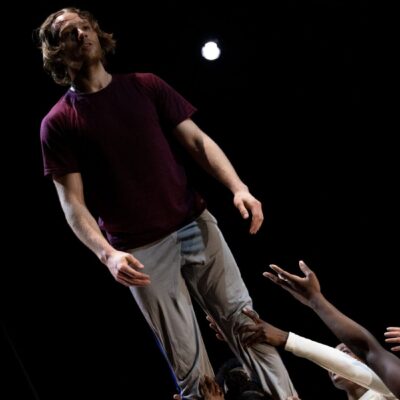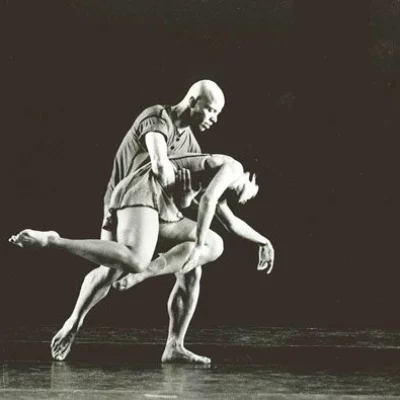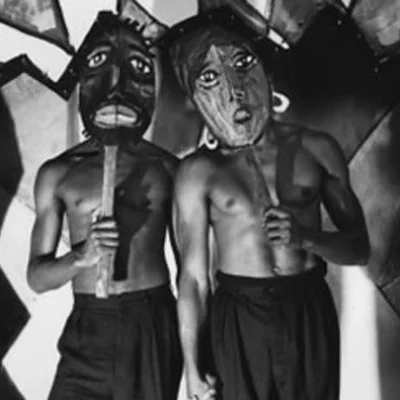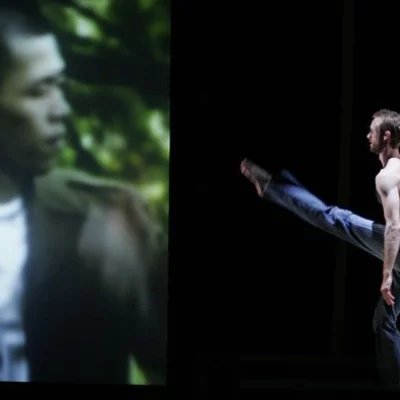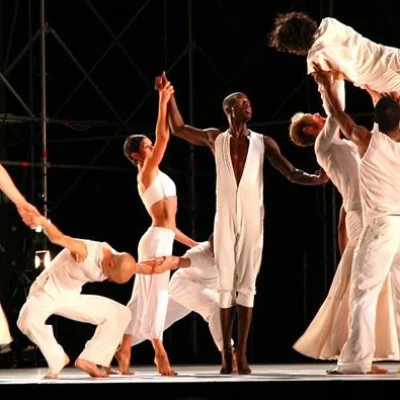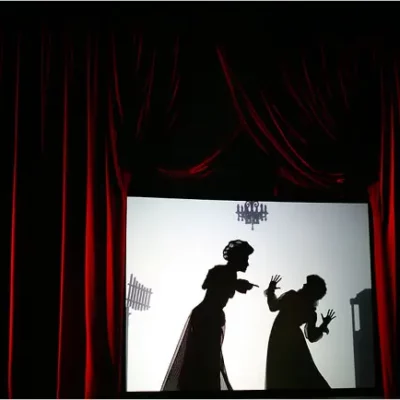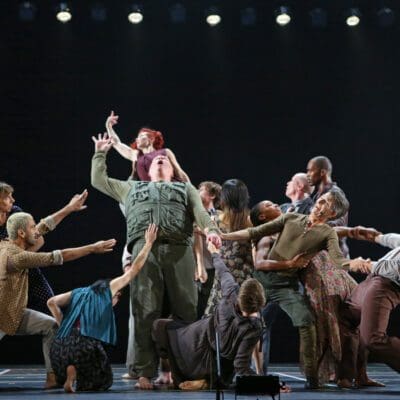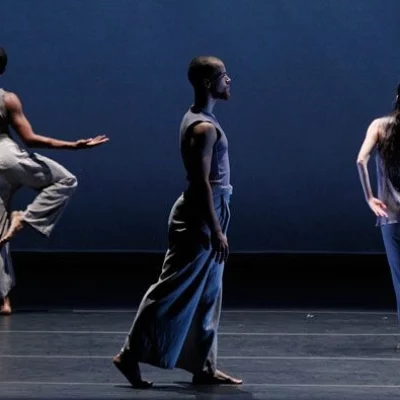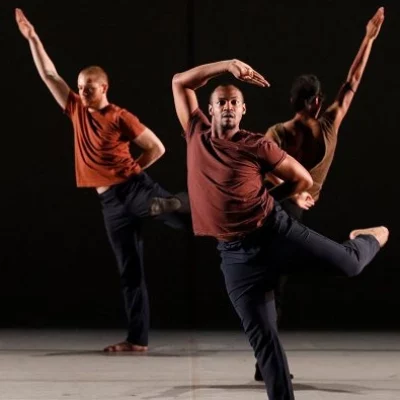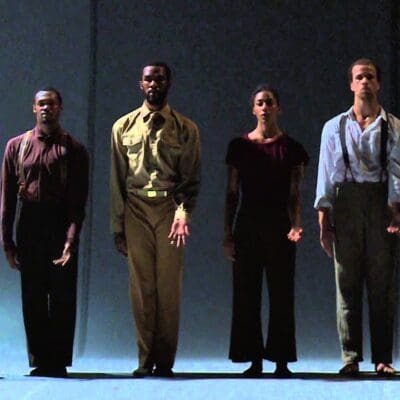Bill T. Jones

Bill Jones was born and raised in rural Steuben County in upstate New York. He began his dance training as a student at the State University of New York at Binghamton where, as a theater major on an athletic scholarship, he enrolled in dance classes with Percival Borde.
After living briefly in Amsterdam, Jones returned to SUNY in 1973 and joined with Lois Welk in forming the American Dance Asylum. Two years earlier, Jones met his long-time partner and companion Arnie Zane. The two choreographed and performed innovative solos and duos in the 1970s, often employing openly gay choreography. In 1982 they founded Bill T. Jones/Arnie Zane and Company, which provided a vehicle for the development of their choreography. Their works increasingly took on evening-length dimensions.
Jones, a tall, powerful dancer, was an outstanding soloist who often mixed video, text, and autobiographical material with his choreography, as he did in “Blauvelt Mountain” (1980) and “Valley Cottage” (1981), part of the trilogy that began with “Monkey Run Road” (1979). Jones and Zane gained recognition as “new wave” or “post modern” choreographers whose large-scale, abstract collaborations, such as “Secret Pastures, Freedom of Information,” and “Social Intercourse,” were visually and spatially altered by contemporary sets, costumes, and body paintings. They danced in costumes by clothing designer Willi Smith and had sets created by pop artist Keith Haring. These collaborative works were performed in prestigious venues such as the Brooklyn Academy of Music and New York’s City Center theater.
In 1983, Jones was commissioned to create the fast-paced, all-male “Fever Swamp” for the Alvin Ailey American Dance Theater, followed by “How to Walk an Elephant,” in 1985. After Zane’s death in 1988 from AIDS, Jones continued to choreograph and perform. His works expanded to the field of opera and musical theater. He choreographed British composer Sir Michael Tippett’s “New Year” (1990), choreographed and directed Leroy Jenkins’ “Mother of Three Sons” (1991) at the New York City Opera, and directed Kurt Weill’s “Lost in the Stars” in 1992. Jones’ work has been commissioned by companies throughout the U.S. and Europe. In 1986 Jones and Zane received a Bessie Award, and in 1991 Jones was recognized as an “innovative master” with the Dorothy B. Chandler Performing Arts Award. In June of 1994, Jones was awarded a MacArthur fellowship.

